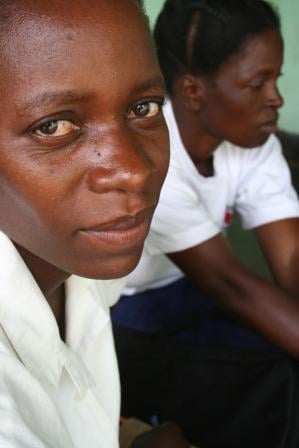When she confronted him about why he had infected her, he responded: "Because we must leave together".
Would a law criminalising HIV transmission have protected the woman or, at the very least, given her some opportunity for legal redress? The question is one that governments, legal experts and AIDS and gender activists in Southern Africa have been grappling with in recent months as a spate of laws have been passed in other parts of the continent enabling prosecution for HIV exposure or transmission.
Among the arguments in favour of such laws is that they help protect those who may have difficulty protecting themselves. Women who often lack the power to insist on condoms or faithfulness from their partners are often cited as being most in need of such protection.
The Malawi case came to light when the woman approached the local office of the Women and Law in Southern Africa (WLSA), a research and advocacy organisation providing legal advice and services in seven regional countries.
Malawi has drafted a bill that would criminalise HIV transmission, but it is not expected to go before parliament until 2009. In other countries, mainly in the developed world, individuals charged with deliberately or recklessly infecting sexual partners with HIV have been successfully prosecuted for aggravated assault or even attempted murder, using existing legislation.
But Seodi White, national coordinator of WLSA in Malawi, said the courts in that country had never used the existing penal code to prosecute someone for HIV transmission, and the woman was advised to try pursuing a civil case. "She decided it was going to be too expensive and she wasn't prepared to go through the emotional trauma," White told IRIN/PlusNews.
Like many others, White is ambivalent about whether criminalisation laws would do more harm than good for women in this part of the world. In her view, Malawi's draft legislation "targets the wrong people". For example, it would force sex workers and pregnant women to be tested for HIV, and could be used to prosecute pregnant women who infected their infants.
"That is a fundamental human rights issue, and we are totally against that," she said. "At the same time, it doesn't mean we're against any form of criminalisation. In Southern Africa, mainly it's men having multiple sexual relations, and men who transmit [HIV] recklessly and even maliciously. So there has to be a level of responsibility that the law can capture."
Critics of criminalisation laws argue that women are more likely to be the victims of such legislation than the beneficiaries. "Far from protecting women, criminalisation endangers them," commented Michaela Clayton, director of the AIDS and Rights Alliance for Southern Africa (ARASA).
"In Africa, most people who know their HIV status are female, because most testing occurs at natal health care sites. The result is that most of those who will be prosecuted will be women, because they know, or ought to know, their HIV status."
She told the International AIDS Conference in Mexico in August 2008 that women were also often reluctant to disclose their HIV status to male partners out of a real fear of abandonment or violence.
Behind the criminalisation curve
Despite having the highest HIV burden, Southern Africa has generally been slower than East or West Africa to adopt laws that would punish people for infecting others with the virus.
"It's a nightmare for judges," said Uyapo Ndadi, a legal officer at the Botswana Network on Ethics, Law and HIV/AIDS (BONELA). "They are tested for HIV after conviction and it's extremely difficult to know if they were positive at the time of the rape."
The same difficulty would apply to finding someone guilty of deliberately or knowingly infecting a sexual partner. "If you could show that somebody knew they had HIV and nonetheless went out having sex with other people, then that is behaviour that does deserve to be criminalised," said Lisa Vetten of the Tshwaranang Legal Advocacy Centre in Johannesburg. "The issue is: how do you prove somebody knew they had HIV?"
While few cases might actually make it to court, Vetten worried that the unintended consequence of criminalisation laws could be to discourage people from being tested and disclosing their HIV-positive status.
Clayton of ARASA agreed. "Why would a woman in Sierra Leone or Malawi or Tanzania want to have an HIV test that will, if positive, put her at risk of a jail sentence if she becomes pregnant, or the next time she has sex? The laws put diagnosis, treatment, help and support further out of her reach."
A UNAIDS policy brief, released in August, urged governments to enact and enforce laws that protect women from sexual violence and discrimination as a more effective way of protecting them from HIV.
ks/he
This article was produced by IRIN News while it was part of the United Nations Office for the Coordination of Humanitarian Affairs. Please send queries on copyright or liability to the UN. For more information: https://shop.un.org/rights-permissions
